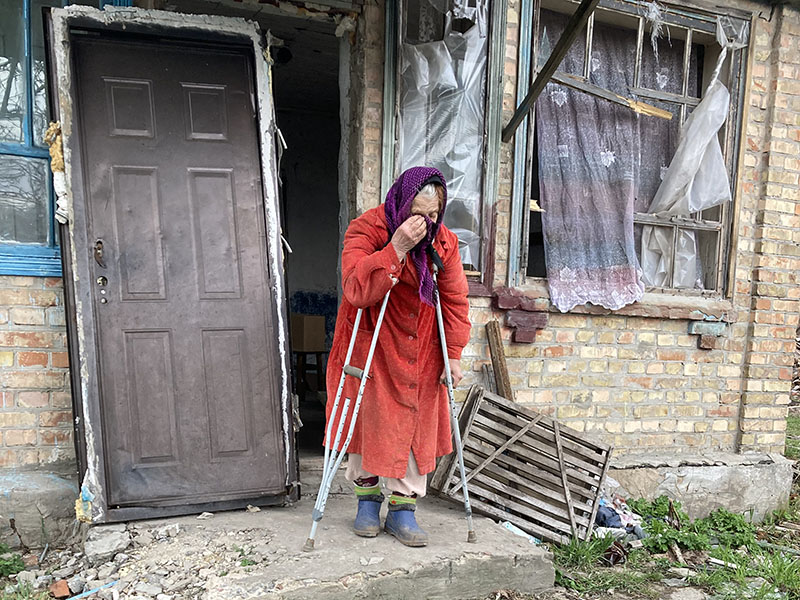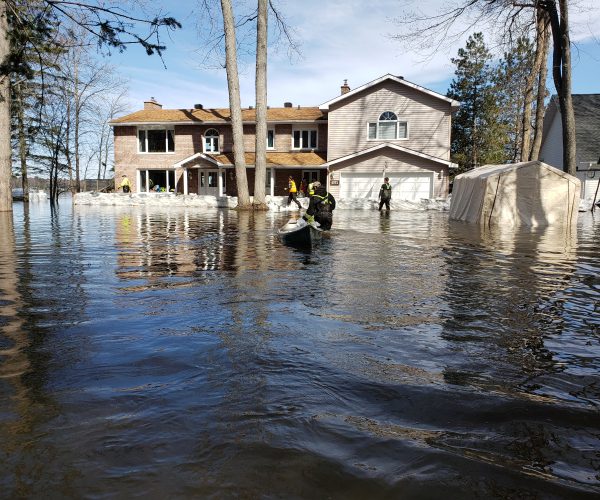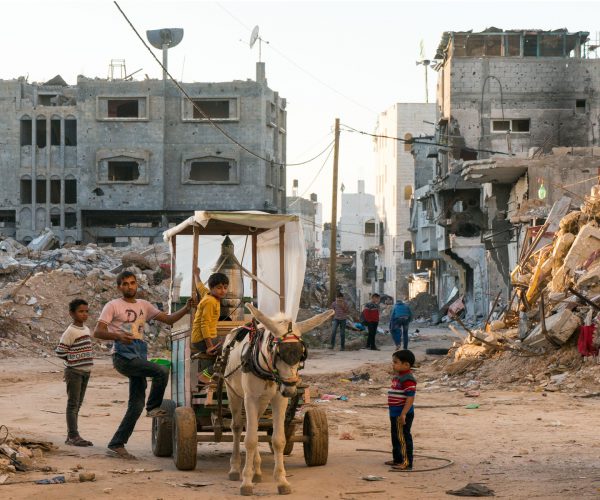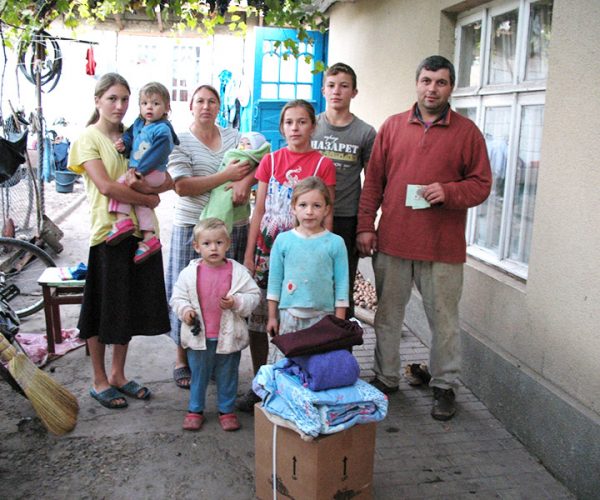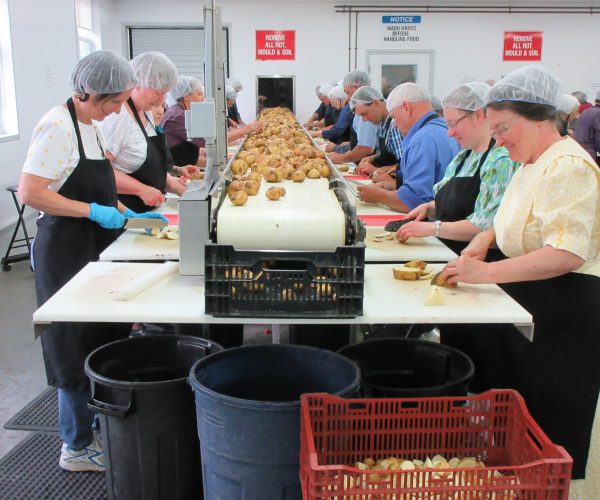Some of the people who are most vulnerable in Ukraine’s war are the disabled, elderly, and widows. Many trains and buses are cancelled as the war unfolds, and fuel can be scarce in conflict areas, making it difficult to travel by car. This leaves people with few options, and many are stranded at home. If people are fortunate enough to find transportation or fuel, many of them don’t have money to pay for it and some can no longer withdraw cash from an ATM.
The disabled who find ways to escape their homes often have a difficult time accessing shelters. People in wheelchairs may not be able to enter underground or basement shelters. Other places of protection often lack water supply and places to sit. The people providing the shelters rarely consider the needs of deaf people.
Sick or disabled people in hospitals usually don’t have an option besides staying at their location, but sometimes bombs surrounded them for weeks. An elderly or disabled person in a conflict zone is largely dependents on someone else to help them.
A weeping widow
Among the vulnerable in Ukraine’s war are widows. Many of them depend on others for help or are alone in deciding if they should stay or flee.
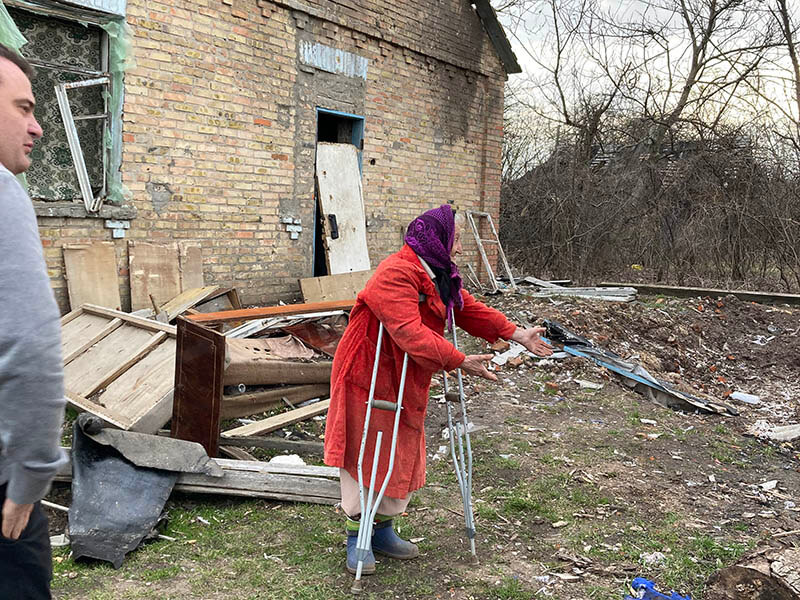
The Ukrainian widow shows our contacts the destruction from the bomb.
A contact visiting Ukraine shared of a widow they met in a village whose property was recently bombed. He said, “Her first expression upon seeing us was one of joy and excitement, but this changed to tears as she relived the story of the destruction we saw behind her house.”
An explosive that landed in her yard took the life of her son. He was in a small building next to her house that was almost flattened. The bomb also formed a small crater in the ground, blew out windows, and destroyed parts of the attic wall and roof.
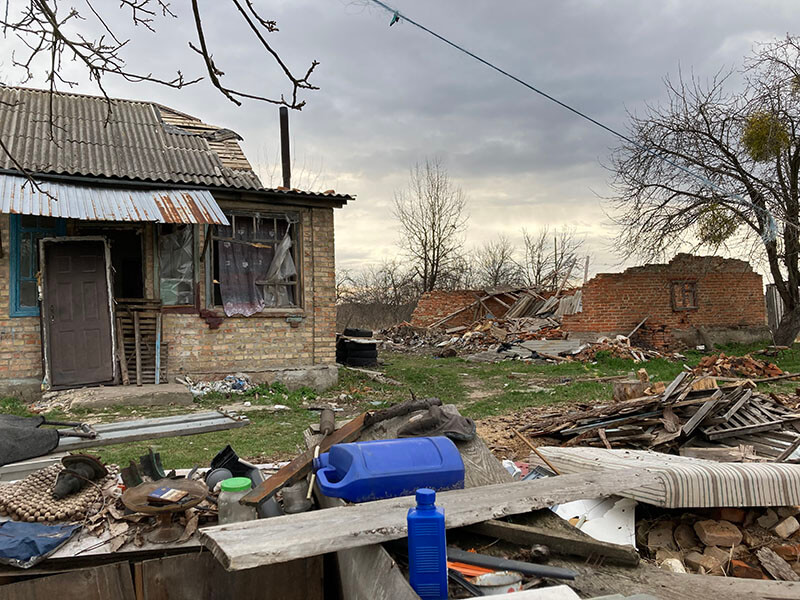
The widow’s property lies in shambles.
Our contact described the situation as the “epidemy of poverty and sorrow.” He left the widow with a gift of food and said, “Our hearts ache for her and we hope the little gift of food would in some way bring hope and light to her again.”
To help support the Ukraine Crisis program, please click below to give a one-time gift.

